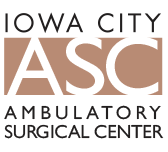OUTPATIENT TOTAL KNEE REPLACEMENT
Outpatient total knee replacement surgery is a safe and effective procedure that can help relieve knee pain and correct leg deformity. Total knee replacement surgery can help you resume normal activities and get back to living your life!
Arthritis or injury can cause severe damage to your knees making it hard to perform even the simplest activities, like walking. The pain could also make just sitting or lying down painful. Nonsurgical treatments are available but if they stop working effectively, you may want to consider a total knee replacement surgery. Many total knee replacements are still fully functioning well after 15 years following the surgery.
Knee replacement surgery could only be performed in the hospital setting when they were introduced back in the 1960s. Since then, however, they have become very common, providing many benefits to the patient. Outpatient total knee replacements are especially effective when performed in an ambulatory surgical center (ASC) like Iowa City Ambulatory Surgical Center. Consider some of the benefits of having your surgery at an ASC:
Benefits of Outpatient Total Knee Replacement:
- Go Home The Same Day – No hospital stay is required, as patients are discharged 4-5 hours after surgery
- Recover At Home – Recover in the comfort of your own home
- Walking The Same Day
- Less Urinary Issues – Patients are less likely to experience urinary retention issues due to the anesthetic used
- Save Money – Cost savings to the patient by having your surgery in an outpatient ASC
- Safer – ASC infection rates are lower than in hospitals
What Happens During Total Knee Replacement Surgery?
Same-day knee replacement is usually performed under either general anesthesia or spinal anesthesia. With general anesthesia, you will be asleep for the duration of the surgery. With spinal anesthesia, you’ll be awake, but unable to feel pain from the waist down. Patients will discuss both approaches with their surgeon and determine which one is best for their preferences and medical needs.
Outpatient total knee replacement surgery itself will typically last around two hours. A typical procedure will usually follow these steps after anesthesia has been administered:
- Your surgeon will move your leg into a bent position to expose as many knee surfaces as possible.
- Then an incision is made. Usually, this incision is somewhere between 6-10 inches in length.
- After making the incision, your surgeon will begin clearing away diseased bone.
- Once the bone tissue is removed, your surgeon will place and secure the artificial knee joint.
- Your surgeon will then give your leg a couple of “test” movements to ensure the new knee joint is functioning properly.
- The incision is then closed.
Once the same-day total knee replacement procedure is complete, you’ll spend 45 minutes to an hour in the recovery room as the anesthesia wears off. Then you will progress to Post Op Phase II for the remainder of your care. Most patients are allowed to return home after this brief recuperation period. At that point, you’ll be able to do most of your recovery at home.
Outpatient Knee Replacement Surgery in an Ambulatory Surgery Setting
Having your total knee replacement procedure performed in an ambulatory surgery center provides significant advantages, which accounts for the increasing popularity of this surgery venue.
Most ASCs are able to provide the same quality care at a fraction of the cost. Additionally, patients are comforted by the less intense, more comfortable nature of ambulatory surgery centers. There are fewer other patients and a higher staff-to-patient ratio.
For many patients, an ambulatory surgery center is the preferred setting for outpatient total knee replacement surgery. If you want to have your procedure performed at Iowa City Ambulatory Surgery Center, talk to your doctor about the referral process.
What to Expect During Your Recovery
Recovery for total knee replacement can take anywhere between 3 and 6 months, though you should be up and walking around (with the assistance of a cane or walker) in a week or two. But everyone is different. And your surgeon will provide you with detailed postoperative recovery instructions.
For most people, the knee replacement surgery recovery timeline might look something like this:
- Day 1: Mobility will be limited, and you’ll be provided with medications to help you control pain and discomfort. That said, rehabilitation will start almost immediately. You will work with a Physical Therapist at the ASC prior to your discharge to ensure you have good mobility.
- Week 1: Towards the end of the first week of recovery, you’ll start walking for short periods, usually with a device to assist you. Depending on the type of dressing your surgeon used (that is if the dressing is not waterproof), you will likely need to avoid showering or getting the area wet for the first seven days or so. Follow the recovery instructions of your surgeon and physical therapist.
- Week 3: You should be able to start moving around more freely by the third week. You’ll also begin to experience less pain and discomfort. Most patients are typically able to walk for ten minutes or so with the assistance of a cane.
- Week 6: By week six, you’ll be able to engage in most typical activities, such as driving. Many people are able to return fully to work by this point, as long as their occupations are not physically demanding.
- Month 3: By the six-month mark, you should be able to perform more physically demanding tasks, such as traveling, lifting, and more.
This timeline for outpatient knee replacement recovery is not comprehensive. There are many check-ins with your surgeon, healing tasks, and physical therapy that will help you fully recover and improve the mobility of your knee. Talk to your surgeon about what your personalized recovery timeline will look like.
Is Outpatient Total Knee Replacement Surgery For Me?
The decision to have total knee replacement surgery should be made between you, your primary care physician, your family, and an orthopedic surgeon.
There are no firm age or weight restrictions regarding who qualifies to have a total knee replacement surgery, but your orthopedic surgeon will advise you on this matter.
At the end of the day, it is important to understand what a total knee replacement surgery can and cannot do for you. While a total knee replacement surgery can significantly reduce knee pain and improve your ability to do normal daily activities, there are limitations and having realistic expectations is important. Your orthopedic surgeon will go over these things and more in full detail.
If it has been recommended you consider a total knee replacement surgery, talk to your doctor about having your surgery at Iowa City ASC, in an outpatient setting.
Opt to Have Your Surgical Procedure Performed at an ASC
Our team at Iowa City ASC compiled some helpful stats and figures that highlight the cost savings between hospitals and ASCs. If you’re curious about the cost difference between hospitals and ASCs, download our resource and find out how you can save money on your healthcare!







